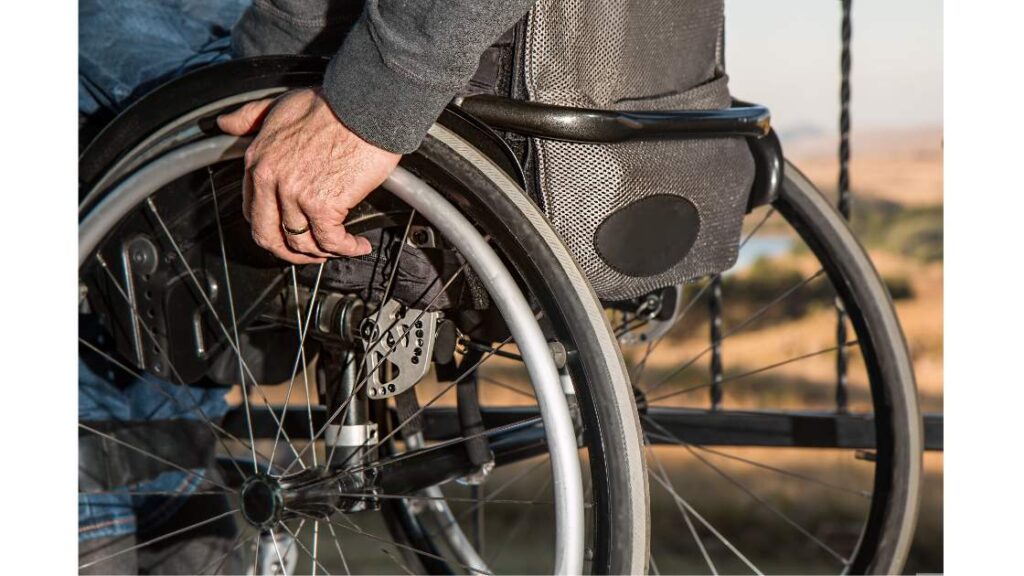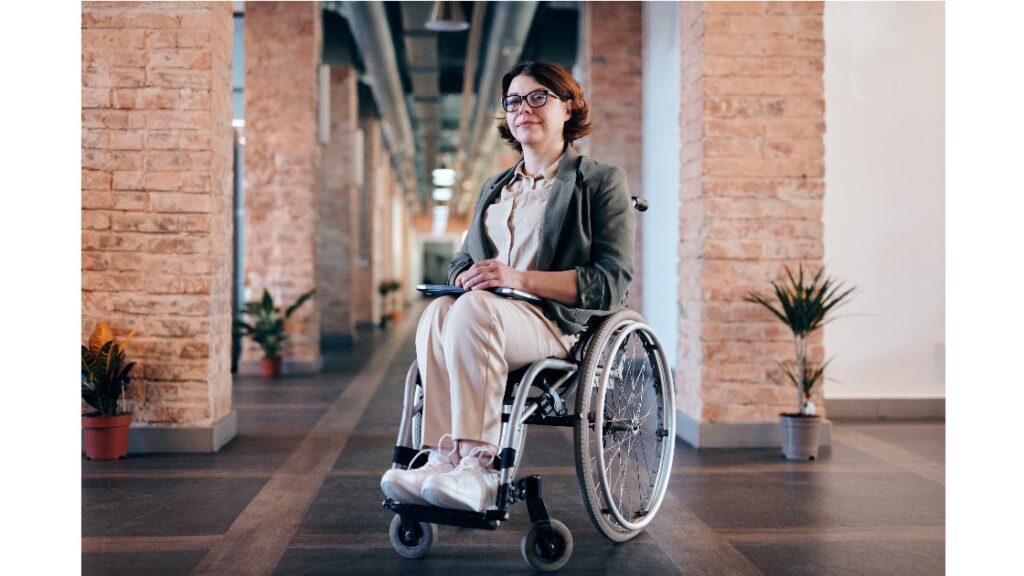A Guide to Buying the Right Bariatric Wheelchair for Mobility and Independence

Are you or a loved one in need of a bariatric wheelchair to improve mobility and regain independence? Finding the right wheelchair that meets your unique needs can be overwhelming. But worry not, because we have got you included with our comprehensive guide to buying the perfect bariatric wheelchair.
In this article, we will walk you through the essential factors to consider when selecting a bariatric wheelchair - from weight capacity and size to maneuverability and comfort. We understand that every individual is different, and that's why it's crucial to find a wheelchair that suits your specific requirements.
Not all bariatric wheelchairs are created equal, and by knowing what to look for, you can make an informed decision. Whether you need a wheelchair for temporary use or long-term recovery, our guide will ensure you have all the necessary information to choose the right one with confidence.
Remember, selecting the right bariatric wheelchair is not just about mobility; it's about enhancing your independence and overall quality of life. So, let's dive into our guide and find the perfect wheelchair that will enable you to live life to the fullest.
Table of Contents
Understanding bariatric wheelchairs
Bariatric wheelchairs are designed to accommodate individuals who require a higher weight capacity than standard wheelchairs can handle. These wheelchairs are specially engineered with reinforced frames and wider seats to provide a safe and comfortable experience for those with obesity or other mobility limitations.
Bariatric wheelchairs are not only built to support higher weight limits but also to distribute the weight evenly to ensure stability and prevent tipping. They offer enhanced structural integrity, allowing individuals to move around with confidence and ease.
Benefits of using a bariatric wheelchair
Using a bariatric wheelchair can have a significant impact on an individual's mobility and overall well-being. Here are some key benefits of opting for a bariatric wheelchair:
1. Increased Mobility: Bariatric wheelchairs provide individuals with obesity or limited mobility the freedom to move around independently. With their sturdy construction and higher weight capacity, these wheelchairs enable users to navigate different terrains and participate in daily activities with ease.
2. Enhanced Comfort: Bariatric wheelchairs are designed with a focus on comfort. They feature wider seats, extra padding, and adjustable components to ensure optimal support and prevent discomfort or pressure sores during prolonged use.
3. Improved Independence: By buying a bariatric wheelchair that suits your specific needs, you can regain control over your daily activities and reduce reliance on others for mobility assistance. This newfound independence can have a positive impact on your mental well-being and overall quality of life.
4. Customizable Options: Bariatric wheelchairs offer a range of customizable options, allowing users to personalize their wheelchairs to meet their specific requirements. From adjustable armrests and leg rests to different seat sizes and backrest angles, these options ensure a tailored fit for maximum comfort and functionality.
Factors to consider when buying a bariatric wheelchair
Selecting the right bariatric wheelchair requires careful consideration of various factors. Here are some essential elements to keep in mind during your decision-making process:
- Weight Capacity and Size: The weight capacity of the wheelchair is one of the most critical factors to consider. It is essential to choose a wheelchair that can comfortably support your weight. Bariatric wheelchairs typically have weight capacities ranging from 18 stones up to 50 stones or more. In addition to weight capacity, you should also consider the size of the wheelchair. Ensure that the seat width and depth are suitable for your body size, providing ample space for comfortable seating. Proper sizing is crucial to prevent discomfort and ensure optimal support.
- Seat Cushioning: Opt for a wheelchair that offers adequate seat cushioning to provide support and prevent pressure sores. Look for cushions made of high-density foam or gel materials that distribute weight evenly.
- Adjustable Armrests and Footrests: Having adjustable armrests and footrests allows you to find the most comfortable position for your arms and legs. Look for wheelchairs that offer height, angle, and width adjustments for optimal comfort.
- Reclining Backrest: If you spend extended periods in your wheelchair or require frequent position changes, a reclining backrest can provide added comfort and relief. Look for wheelchairs with multiple reclining positions to find the most suitable one for your needs.
- Elevating Legrests: If you experience swelling in your legs or need to elevate them for therapeutic reasons, consider a wheelchair with elevating leg rests. These leg rests allow you to raise your legs to a comfortable position, promoting blood circulation and reducing discomfort.
- Anti-Tip Devices: To ensure your safety, look for bariatric wheelchairs equipped with anti-tip devices. These devices provide stability and prevent the wheelchair from tipping backwards, especially when navigating ramps or uneven surfaces.
It's worth noting that the size of the wheelchair can impact maneuverability. Bulkier wheelchairs may be more challenging to navigate through narrow doorways or tight spaces. Consider the layout of your home or the places you frequently visit to determine whether a smaller or larger wheelchair would be more suitable for your needs.
In addition to those features, there are various wheelchair accessories available that can further enhance your wheelchair experience. Accessories such as cup holders, storage pouches, and oxygen tank holders can add convenience and functionality to your wheelchair.

Types of Bariatric Wheelchairs
Bariatric wheelchairs come in various types, each offering unique features and benefits. Understanding the different types can help you narrow down your options and choose the one that best suits your needs.
1. Standard Bariatric Wheelchairs: These wheelchairs are the most common type and are suitable for individuals who need basic mobility assistance. They typically have a weight capacity of 300 to 450 pounds and offer standard features such as armrests, footrests, and adjustable seat heights.
2. Heavy-Duty Bariatric Wheelchairs: Designed for individuals with higher weight requirements, heavy-duty bariatric wheelchairs have weight capacities ranging from 450 to 700 pounds. They feature reinforced frames, wider seats, and larger wheels for increased stability and durability.
3. Electric Bariatric Wheelchairs: If you require powered mobility assistance, electric bariatric wheelchairs are a great option. These wheelchairs are equipped with motors that allow you to move around effortlessly. They offer a range of features such as adjustable seating positions, reclining backrests, and advanced control systems for ease of use.
4. Transport Bariatric Wheelchairs: Ideal for individuals who need assistance with transportation, transport bariatric wheelchairs are lightweight and foldable for easy storage and portability. They are designed to be propelled by a caregiver and are not self-propelled.
Consider your specific mobility needs and lifestyle when buying the type of bariatric wheelchair. If you require more independence and maneuverability, an electric wheelchair may be the best option. On the other hand, if you need a wheelchair for occasional use or transportation purposes, a transport wheelchair might be more suitable.
Features and Accessories to Look for in a Bariatric Wheelchair
When buying a bariatric wheelchair, consider the following features and accessories to enhance your comfort and convenience:
1. Reinforced Frame: Opt for a wheelchair with a reinforced frame to ensure stability and durability. Look for materials such as steel or aluminium, known for their strength and longevity.
2. Seat Cushions: Choose a wheelchair that comes with a high-quality seat cushion to provide support and prevent pressure sores. Gel or foam cushions can offer excellent comfort during extended periods of sitting.
3. Adjustable Components: Look for wheelchairs with adjustable armrests, leg rests, and backrests to accommodate your specific body proportions and preferences.
4. Ease of Transportation: Consider the weight and foldability of the wheelchair if you plan to transport it frequently. A lightweight and compact wheelchair can make it easier to travel and store.
Testing and Trying Out Bariatric Wheelchairs
Before making a final decision, it's important to test and try out different bariatric wheelchairs to ensure a proper fit and optimal comfort. Here are some steps to follow when trying out wheelchairs:
1. Visit a Mobility Store: Visit a reputable mobility store that specializes in bariatric wheelchairs. The staff can guide you through the selection process and help you try out different models. Then compare online prices and make your decision to buying a wheelchair.
2. Sit and Adjust: Sit in the wheelchair and adjust the seat height, armrests, footrests, and any other adjustable features to find the most comfortable position. Ensure that the wheelchair provides adequate support and allows for proper posture.
3. Test Maneuverability: Navigate the wheelchair through the store to test its maneuverability. Try turning corners, maneuvering through narrow spaces, and going over ramps or obstacles to ensure the wheelchair meets your mobility needs.
4. Ask Questions: Don't hesitate to ask the store staff any questions you may have. They can provide valuable insights and recommendations based on their expertise.
By testing and trying out different wheelchairs, you can get a firsthand experience of their comfort, maneuverability, and overall suitability for your needs.

Financing Options for Bariatric Wheelchairs
Bariatric wheelchairs can be a significant investment, but there are various financing options available to help make them more affordable. Here are a few options to consider:
1. Insurance Coverage: Check with your health insurance provider to see if bariatric wheelchairs are covered under your plan. Some insurance plans may cover a portion or the entire cost of the wheelchair, depending on your specific circumstances.
2. Medicare or Medicaid: If you're eligible for Medicare or Medicaid, you may be able to obtain coverage for a bariatric wheelchair. Contact your local Medicare or Medicaid office to inquire about the requirements and coverage options.
3. Financing Plans: Many mobility stores offer financing plans that allow you to pay for the wheelchair in installments. These plans may come with low or no interest, making it more affordable to purchase the wheelchair over time.
4. Charitable Organizations: Some charitable organizations assist individuals in need of mobility equipment. Research organizations in your area that offer grants or financial aid for bariatric wheelchairs.
Explore these financing options to find the one that best suits your financial situation and can help make the cost of a bariatric wheelchair more manageable.
Maintenance and Care for Bariatric Wheelchairs
To ensure the longevity and optimal performance of your bariatric wheelchair, proper maintenance and care are essential. Here are some maintenance tips to keep in mind:
1. Regular Cleaning: Clean the wheelchair regularly using mild soap and water. Pay attention to the wheels, upholstery, and any other surfaces that come into contact with dirt or debris.
2. Tire Inspection: Check the tires for wear and tear regularly. Replace any worn-out tires to maintain proper traction and maneuverability.
3. Battery Maintenance: If you have an electric bariatric wheelchair, follow the manufacturer's instructions for battery maintenance. Regularly charge the batteries and avoid overcharging or completely depleting them.
4. Routine Servicing: Schedule routine servicing with a professional technician to ensure all components of the wheelchair are in proper working condition. They can inspect and address any issues before they become major problems.
By following these maintenance tips, you can prolong the lifespan of your bariatric wheelchair and ensure it remains in excellent working condition for years to come.
Conclusion: Finding the right bariatric wheelchair for your needs
By following these points, you may now have enough information about finding the right bariatric wheelchair for your needs. If you have any questions, comment down below. I will try to answer or our team will respond you.

